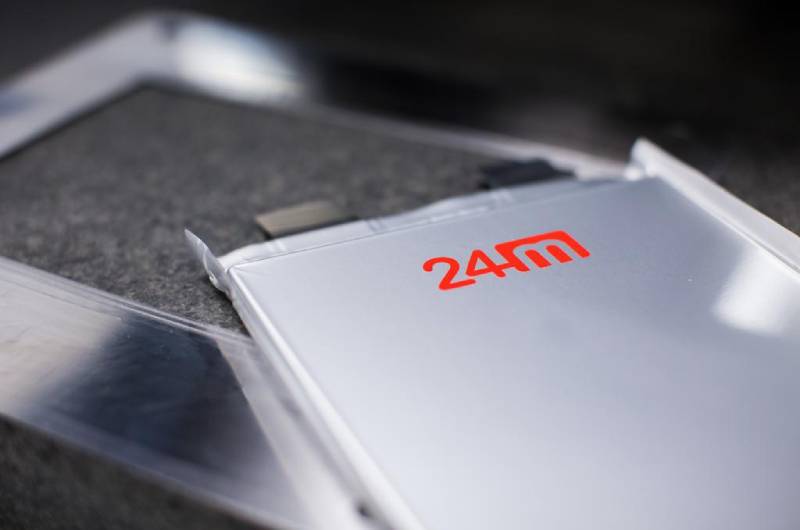
24M, a U.S. startup, to introduce cost-effective semisolid EV batteries with a 40% price reduction
- Business
- December 1, 2023
According to information U.S. battery producer 24M Technologies plans to begin producing electric vehicle batteries as early as 2025. These batteries can be produced for up to 40% less money than existing lithium-ion batteries.
Because they are less flammable than lithium-ion batteries, power cells, also known as “semisolid-state batteries,” are regarded as safer than the latter type. They significantly increase the performance of all-solid-state batteries by using a bridge technology, which is anticipated to help drive down the cost of EVs and promote their widespread use.
24M Technologies has created the technology and intends to use domestic and foreign battery producers, such as Japan’s Kyocera, which has licensed the technology, to mass-produce the batteries in China, India, and Japan after 2025. These producers will provide them to automobiles in Europe, Asia, and the U.S.
Among its investors are Japan’s Fujifilm, Volkswagen, and Itochu, a trading corporation. The startup is situated in Massachusetts.
The method makes effective use of the semisolid nature of the electrolyte to reduce the amount of space needed in battery packs. In comparison to traditional lithium-ion batteries, the energy efficiency can be increased by roughly 50% due to the possibility of reducing the number of components.
The electrolyte of semisolid-state batteries conducts electricity between the positive and negative electrodes. It resembles clay. Compared to liquid lithium-ion batteries, which employ a liquid electrolyte, they have a lower chance of igniting.
But compared to lithium-ion or all-solid-state batteries, which Toyota Motor and other companies intend to start mass-producing in 2027, semisolid state batteries have a smaller storage capacity. This could be a drawback since, compared to lithium-ion batteries, they might have a lower cruising range in electric vehicles. However, compared to all-solid-state batteries, they are simpler to make.
Prior to advancing with all-solid-state batteries, Chinese manufacturers have been attempting to commercialize semisolid-state batteries as well. They are being developed by BYD, a Chinese electric vehicle manufacturer, and Contemporary Amperex Technology (CATL), a leader in Chinese batteries. To collaborate on the development of semisolid-state batteries, Japan’s Honda has invested in the American EV battery startup SES.
Under license, 24M intends to mass-produce the batteries and supply them for a range of uses, such as EVs, motorcycles, household storage batteries, and lead-acid battery replacements. By improving their energy density, the business intends to extend their cruising range.